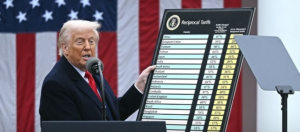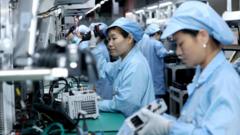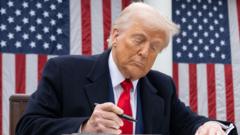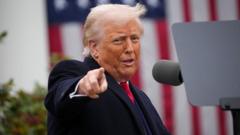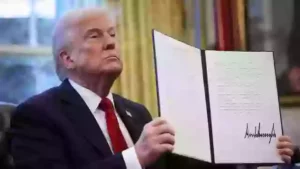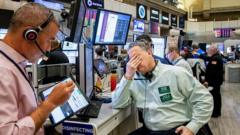**DeepSeek's explosive emergence raises questions about American leadership in AI technology and the industry's future trajectory.**
**China's DeepSeek AI: A Game-Changer in the Tech Race**
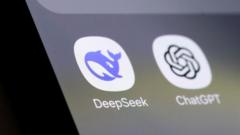
**China's DeepSeek AI: A Game-Changer in the Tech Race**
**New Chinese AI prompts major market shifts and challenges US dominance**
The arrival of DeepSeek, a groundbreaking AI chatbot from China, has sent shockwaves through the technology sector, marking a significant turning point in the global artificial intelligence landscape. Touted for having been developed at an astonishingly low cost of just $5.6 million, DeepSeek has quickly outstripped competitors, like ChatGPT, in popularity. Over the past weekend, it surged to the top of the Apple App Store in the United States, igniting fears among investors regarding America's once-unassailable position in the AI realm.
Prominent venture capitalist Marc Andreessen aptly remarked, "DeepSeek-R1 is AI's Sputnik moment," drawing parallels to the launch of the Soviet satellite that catalyzed the space race. The repercussions of DeepSeek's success were felt immediately; by the close of trading on Monday, stocks of leading tech firms saw significant losses, including a staggering 17% drop in Nvidia's shares, translating to nearly $600 billion in market value evaporated. This historic decline highlighted deep-rooted concerns about the sustainability of US dominance in AI technologies amid rising competition.
As investors grappled with the aftermath of the AI app's dramatic entrance, silence enveloped many corners of Silicon Valley. While some industry experts viewed the situation as an opportunity for investment, others expressed skepticism regarding DeepSeek’s financial claims. Veteran analyst Gene Munster pointedly questioned the validity of the startup's data, speculating whether the venture was receiving undisclosed subsidies.
DeepSeek's arrival coincided with previous optimism expressed by US tech leaders and former President Donald Trump, who just last week heralded the formation of a $500 billion joint venture with AI giants and declared it a time of unprecedented American strength in technology. Yet, with the advent of this new Chinese competitor, it has become clear that the balance of power may not rest solely in the hands of US firms.
Trump responded to this abrupt shift by characterizing it as a "wake-up call" for the American tech sector, emphasizing the potential benefits of cost-effective AI solutions. The performance of tech stocks was not the only area impacted, as energy stocks also faced declines, underscoring a potentially transformative moment in the industry's understanding of AI development.
DeepSeek attributes its success to leveraging existing technologies and open-source software, accessing advanced chips through strategic stockpiling. As policymakers consider revisiting restrictions on sales of high-performance computing chips to China, the stakes are high for established companies like Nvidia. Sam Altman, CEO of OpenAI, noted the impressive status of DeepSeek and reaffirmed the importance of competition in the space.
The arrival of DeepSeek resonates strongly with the story of Sputnik, suggesting that the dynamics of the AI race could have only just begun. How US tech leaders strategize in response to this emerging challenge remains to be seen, as they will have to navigate increased competition amid a rapidly evolving landscape.




